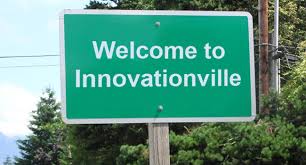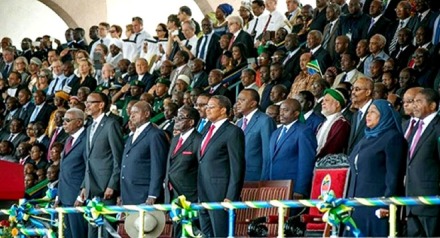Jamie and I sojourned for a long weekend in Uganda. While Kampala didn’t impress us except for insane traffic, it was a wonderful break from work. We went whitewater rafting down the Nile River and lounged, ate, and happily languished in the sun with drinks in hand. As always, if you want to see photos, including of when we capsized (twice), check our Google Photo Album or follow me (@thewanderingview) or Jamie (@jewsforcheesus) on Instagram.
Not so long ago there was a popular Israeli song titled “Lama Lo Uganda?” Hebrew for, “Why not Uganda?” Here’s a little historical context: In the early 20th century, Great Britain was trying to figure out how to make allies of both Jews and Arabs leading up to World War I. The only way to do that was to find a solution to the conflicting Jewish and Arab aspirations for that blessed and cursed tract of land between the Jordan River and Mediterranean Sea. And Great Britain figured it out: let the Arabs have Palestine and give the Jews Uganda! It’s a national Jewish homeland, just in a place where Jews had no historical, spiritual, or physical connection; the Zionist Congress roundly rejected it. The song is lighthearted, ironically lamenting that maybe Uganda was the way to go.
The Uganda Plan was a bad idea; it shifted a problem instead of solving it and it attempted to hollow out the ideals of Zionism while leaving the packaging intact and call it whole. But cutting corners for convenience is ubiquitous: it’s in every organization, hierarchy, and culture in the form of jargon. I define jargon as when a term becomes a symbol and that symbol ends up replacing independent thinking and the goal it was actually established to meet. In business, managers constantly invoke the virtue of efficiency to drive decisions. But efficiency is never the business’s goal, just one indicator among many others. Eliyahu M. Goldratt and Jeff Cox capture this “tail wagging the dog” phenomenon in their book, “The Goal.”

In the non-profit industry, managers pray at the altar of innovation, but to what end? Innovation is important, but it so often causes so much hand-wringing it’s as if organizational missions are reduced to being the vehicle to simply showcase innovation. There are myriad examples to include but let’s move to the next point: Democracy in most of East Africa today is little more than jargon.
Democracy is when a society regulates itself to create constructive tension and harmony between individuals and sub-groups, to the benefit of that society as a whole. No one does this perfectly; democracy is as much a group journey as it as a set of systems and institutions. America is an exciting democracy despite, and in some ways because of, its warts, many of which are on full display when Donald Trump tries to poison our country for his own profit. Borrowing from MLK, America’s moral arc is long and uneven, but it bends towards justice. Our democracy is more inclusive and mature than it was 50 years ago and 50 years from now it will be even more so than today.
But in most of East Africa, while the word democracy is everywhere, only the packaging is left intact. Elections were just held in Uganda; President Yoweri Museveni won handily and few believe the results have any authenticity. Elections are the easiest imitations of democracy to display for foreign governments and investors and, in this region, they rarely reflect popular opinion. Even in South Africa, where election results are honest, anyone who is not a beneficiary of the African National Congress hardly feels like they get a whisper in government decisions. Many protest, but more resign themselves to a corrupt, incompetent government. The regimes in Kenya and (un)Democratic Republic of the Congo are too busy remembering who they took bribes from to even feign democracy.
Is this a uniform condemnation? Hardly. We have a fairly fixed conception of democracy: regular elections with universal suffrage, an independent judiciary, protection of press, free expression, and private property. All of these may be a part of our utopian vision but if those conditions are the whole of the democracy we promote, instead of the core pursuit of creating harmony within a society, then we compel these countries to jargnoize democracy for the sake of foreign cash flow. In “Long Walk to Freedom” Nelson Mandela speaks about his childhood village tribal councils. Tribesmen would come to the hall of the chief, present pressing conflicts, and the chief would build an agreement by consensus. The chief was born into his position, so by our standards this is not a democracy. Yet Mandela praised this system as democratic since it settled conflict and created cooperation among quarreling neighbors. Who am I to disagree with the great Madiba!
In “We Wish to Inform You that Tomorrow We will be Killed with our Families” President Museveni explains his disinterest in a Ugandan multi-party democracy by making the comparison to a man with a heart condition who tries to prove his good health and kills himself in the process. The “democratizing” of Iraq and Arab Spring prove the point quite well. We jammed in the mechanisms of democracy where the societal cohesiveness was not strong enough to hold up and what we got are dictators and the Islamic State.

Zimbabwe’s President Robert Mugabe, Ugandan President Yoweri Museveni, DRC’s President Joseph Kabila, Uhuru Kenyatta of Kenya, and Jacob Zuma at a ceremony to celebrate the peaceful transfer of power in Tanzania.
Rwandan President Paul Kagame also leads a single-party government and controls the army, which does not hesitate to instruct people on how they should vote when elections are held; no one expects this to change, but should we wag our finger at Kagame? It was only 22 years ago that Rwanda suffered a genocide rooted in the rivalry between Hutus and Tutsis. For democracy to work, citizens must believe that their destiny is enmeshed with the destiny of all their neighbors. Otherwise the staples of democracy are little more than a coat of polish on tribal vitriol. Perhaps Rwanda will host a vibrant political discourse someday with great discord and dignity, but to push that prematurely is not just dangerous, it’s radioactive. You need look no further than Burundi on Rwanda’s southern border to see that Hutu-Tutsi violence remains a potent threat.
So what am I to think? Democracy is a fig leaf for single party rulers, so that’s bad!
But that may be the only way to set the foundations to uphold a democracy, so that’s good!
But we’ll only know that’s the case if a peaceful transfer of power can take place, so that’s…inconclusive.
There is no stress test for if these governments are ushering their countries towards democracy or away from it. Only when Kagame, Museveni, et al either die or step down will we know down which road they have led their people. How frustrating to the instant gratification seeking millennial who is thirsty to witness history, good or bad.
Maybe I should just be content with a fun get-away and ask “Lama Lo Uganda?”
Interesting! A compendium showing how lip service to democracy allows traditional modes of government to thrive . Since tribal and totalitarian modes are thriving along with corrupt practices, your conclusion is at best the jury is out to any long term relevance to democratic hopes. I would suggest a more hopeful view. However to hold such a view requires a strong underdtanding of active steps that must be continuously assured and meaningfully funded to prosper. Specificlly democracy requires the formation and aggregation of political interest groups.and expression of those political interests. Aid to governments needs to support and safeguard all such efforts as much as the building of institutions and economic infrastructure. Easier said than done? Yes, but it is probably a sine qua non. IMO. Also if you require some one to spend 5 mins to simply comment Is this necessary? Simplify and facilitate! Otherwise this is a great blog and thanks . I did learn a lot.
LikeLike